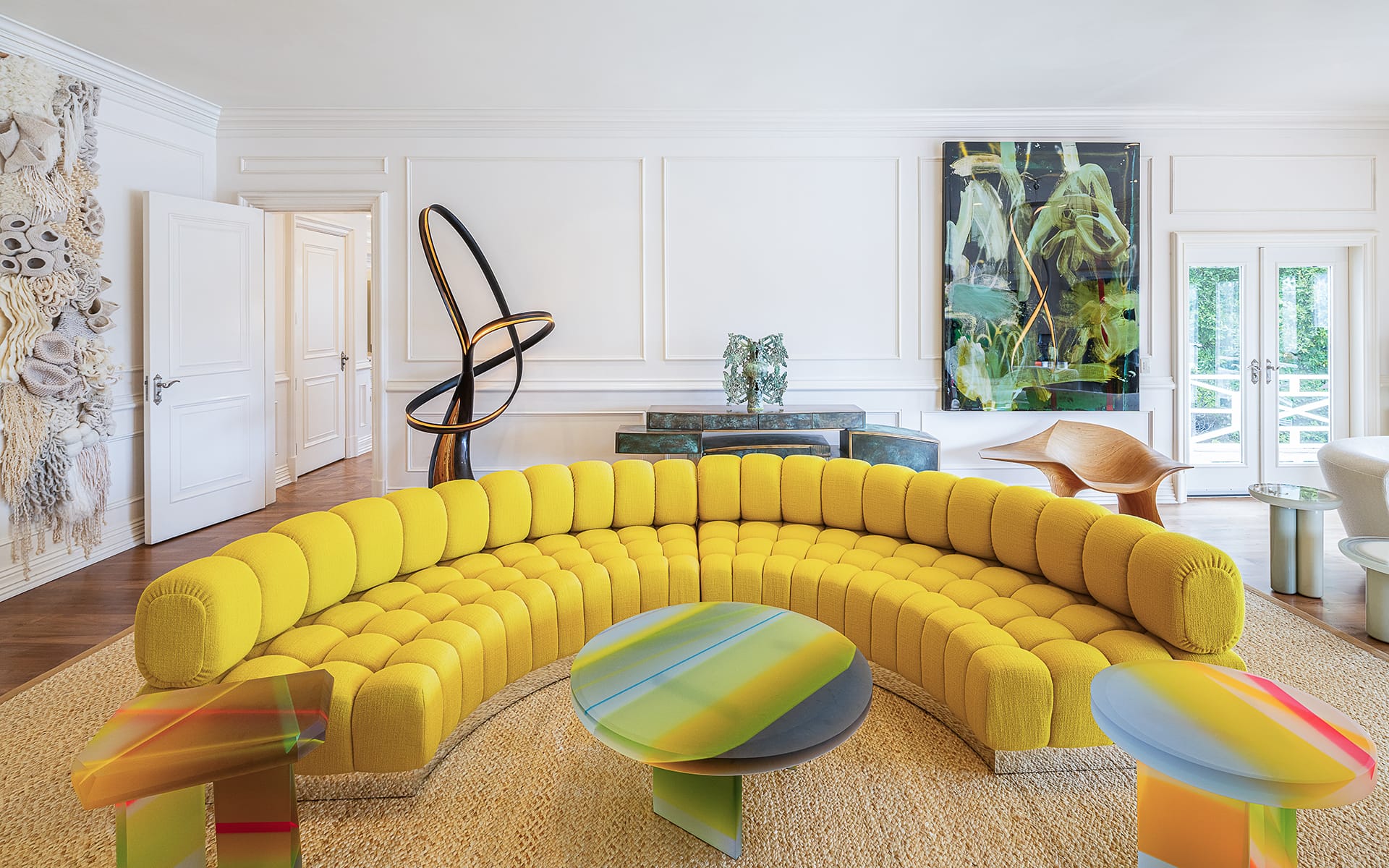California Dreamin’: Design Miami LA’s Triumphant Inaugural Edition
Architect Lee F. Mindel, FAIA, shares what caught his eye at the debut showcase, which took place at a historic home of architect Paul Williams

The old adage “go West and grow up with the country” was Horace Greeley’s 1854 proclamation, which applies to the triumphant debut of Design Miami LA. So much time in Los Angeles is spent driving from place to place, but arriving at the Paul Williams’s 1936 30,000-square-foot residence and campus made this particular trip worth-wile. The campus of Williams’ home—which itself looks like it is from one of Slim Aaron’s iconic photos—was especially joyous with the 37 exhibitors installed throughout the main building, various gardens, pool house, and drive court.
The first Black architect to become a member of the American Institute of Architects, Williams became a big star in Holmby Hills, Beverly Hills, and Bel Air during the mid-20th century. The success of the inaugural Design Miami LA is not only attributable to the residence in which it occurred, but also to the participating galleries’ understanding of the very essence of the L.A. lifestyle. Curated by Ashlee Harrison, and under the direction of Jen Roberts, CEO, the exhibition was full of light, air, energy, and joy.

Among the many standouts, perhaps the two galleries that immersed themselves in response to not only the building and its landscape, but to the California lifestyle the most were Todd Merrill Studio’s living room and Raise the Moral’s installation, It’s Not the Mushrooms, It’s Me Talking.

Todd Merrill Studio’s response to the Paul Williams room made the residence come alive again. Let the sun shine! The acrylic table by Draga & Aurel evokes the surfboard culture of the Beach Boys.

The Aurel K. Basedow acrylic painting from Todd Merrill Studio’s is an evocative abstraction of the site’s balmy palm trees.


Raise the Moral’s greenhouse explores the sound, smell, and feel of things that grow, especially that of the mushroom. Moral Tugerman and Kelsey Falter’s abstract forms recall the shapes of mushrooms, becoming vessels that contain plant material from the site itself. The soil in which some are planted have sound attenuation so the experience of growth can be heard through headphones. Not only do we speak to the things that grow, in Tugerman’s words, “the things that grow speak to us.”

The Future Perfect has a complete understanding of the L.A. lifestyle. J.B. Blunk’s cypress chair is a masterpiece of California archeology. It was Isamu Noguchi who described J.B. Blunk’s work as being “free from categories that are called art.”

James De Wulf’s wood and copper glass mirror looks like the dappled light of a California sequoia.

Twentieth Century’s paper-like wall hanging looks like a coated bark of a birch tree.

London’s Gallery Fumi Voukenas Petrides, Tripod Bench, is an outdoor California sun-inspired pedestal that responds to the Pacific blue water.

Tennis anyone? Carpenter’s Workshop Gallery, Late Talk Left by Pablo Reinoso.